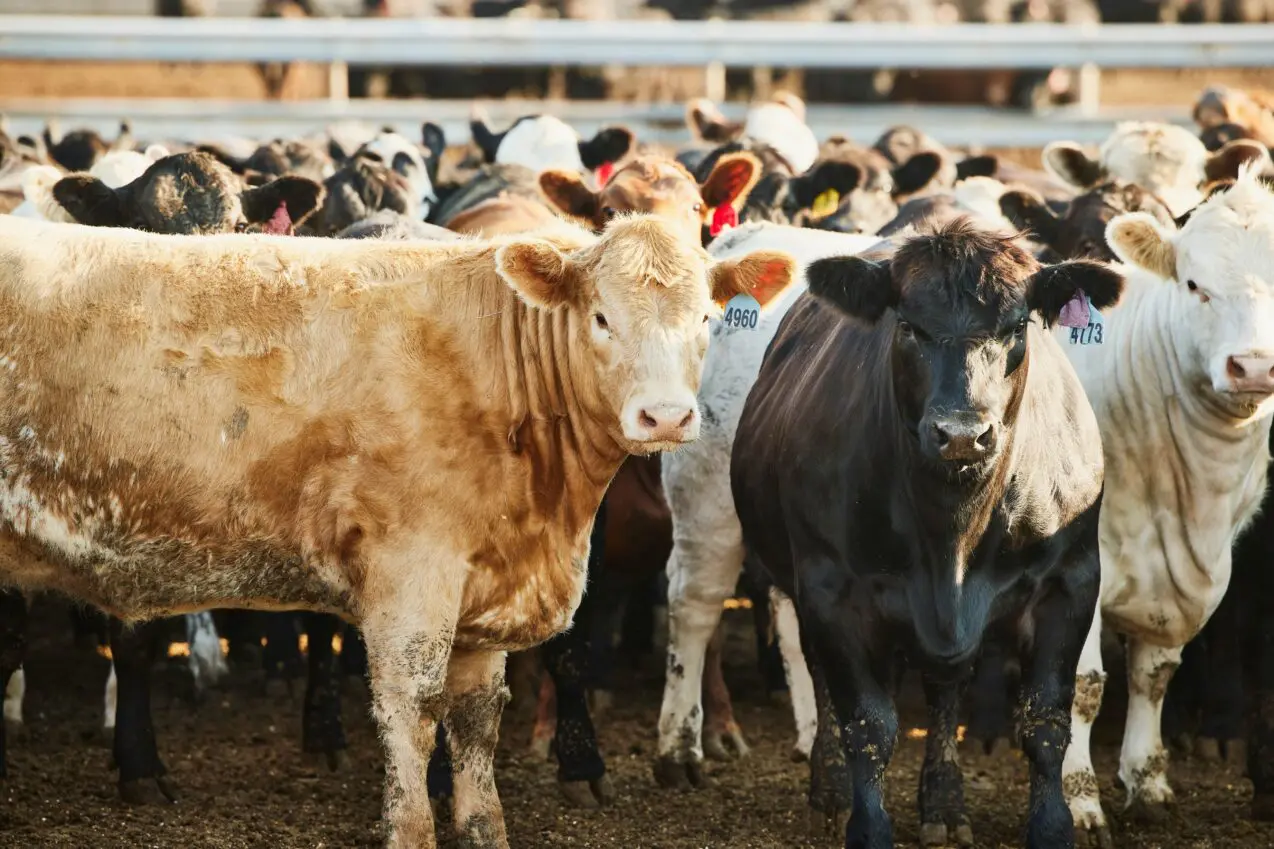California health officials have identified 16 human cases of bird flu this month as the virus spreads through dairy farms, raising concerns about worker safety and testing protocols. According to the Centers for Disease Control and Prevention, the cases represent most of the country's cattle-to-human transmissions of H5N1.
The California Department of Public Health reports testing only 39 people for H5N1, the strain affecting cattle herds across the state. Workers who tested positive have experienced mild symptoms, including flu-like conditions and pink eye, with no hospitalizations reported.
State authorities have confirmed bird flu infections at 178 California dairies since the virus first appeared in August. The state's dairy industry, particularly in Tulare County, the nation's largest milk producer, faces ongoing challenges as the outbreak continues with no signs of slowing.
Dr. Erica Pan, chief epidemiologist with the state health department, said 20 to 30 people undergo weekly screening for various influenza variants, including bird flu, as part of routine monitoring. "This is about looking for symptoms and then testing for them instead of testing people without symptoms," Pan said.
Worker advocates express concern about the current surveillance strategy, which largely relies on farmers to report disease cases among animals and employees. "Workers are actively avoiding testing, I can assure you," said Elizabeth Strater, spokesperson for United Farm Workers. "We have heard directly from farmworker communities and veterinarians that they can see that there are workers out there who are sick."
Strater highlighted the economic pressures facing workers. "The most concerning data we have is how little data we have," she said. "Hundreds of herds have tested positive, and the number of people tested is in the dozens — that's a problem."
The virus is transmitted from cows to humans through close and prolonged contact with infected animals. Health officials maintain that the risk to the general public remains low, with no documented cases of human-to-human transmission.
State and local health departments have focused their response on distributing protective equipment and worker education. The state health department reports distributing more than 3.3 million pieces of personal protective equipment to local health departments and farms.
Officials have also deployed 5,000 doses of seasonal flu vaccine for farm workers. While this vaccine does not protect against bird flu, it helps reduce the risk of severe coinfection.
Tricia Stever Blattler, executive director of the Tulare County Farm Bureau, acknowledged the initial challenges in implementing safety measures. Early October's high temperatures, exceeding 100 degrees, made workers reluctant to wear additional protective equipment, though compliance improved as temperatures dropped.
According to Stever Blattler, the severity of the outbreak caught the dairy industry unprepared. "Our dairies are really trying to fast-track their learning on the situation," she said. They're trying to create an appropriate and safe workplace, and they're also trying to increase the care and monitoring of the cattle itself."
Carrie Monteiro, spokesperson for Tulare Public Health, reported that local farmers have cooperated with virus mitigation efforts. "They really are reporting and making sure we're getting the care to their workers and the medication to help their employees recover from this illness," Monteiro said.
The county has expanded its testing capacity to include 15 community doctors, though testing still depends on symptomatic individuals seeking care. Positive cases trigger 10-day monitoring periods for patients and their households, with antiviral flu medication provided.
Worker advocates call for increased state action to ensure farmworkers receive compensation if they contract the virus at work. The state Department of Industrial Relations confirms that workers who contract bird flu qualify for workers' compensation, regardless of immigration status. Employers must provide workers' compensation claim forms and report cases to local health departments.
"I would like to see public health agencies working together with (industrial relations) and doing a push to reassure people to get tested," Strater said. "If you test positive, all of your lost wages should be compensated by workers comp."
The current outbreak follows two years of bird flu presence in California farms, during which millions of poultry were culled. The virus's recent jump to cattle represents a new challenge for the state's agricultural sector and its workforce.

 Bregman's $120 million, 3-year deal with Red Sox includes $60 million deferred, paid from 2035-46
Bregman's $120 million, 3-year deal with Red Sox includes $60 million deferred, paid from 2035-46
 Police arrest apparent leader of cultlike 'Zizian' group linked to multiple killings in the US
Police arrest apparent leader of cultlike 'Zizian' group linked to multiple killings in the US
 Four senior aides to New York mayor Adams to resign, media report
Four senior aides to New York mayor Adams to resign, media report
 UK PM Starmer says U.S. must provide security guarantee for Ukraine to deter Russia
UK PM Starmer says U.S. must provide security guarantee for Ukraine to deter Russia
 Airbus to delay A350 freighter amid supply problems, sources say
Airbus to delay A350 freighter amid supply problems, sources say
 Congo rebels promise security in Bukavu after looting
Congo rebels promise security in Bukavu after looting
 What is a polar vortex? US gets a taste of the Arctic this week
What is a polar vortex? US gets a taste of the Arctic this week
 Mark Ruffalo wants you to remember that ‘every petty dictator…they always lose’ in the end
Mark Ruffalo wants you to remember that ‘every petty dictator…they always lose’ in the end
 Mexican musical legend Paquita la del Barrio dies at 77
Mexican musical legend Paquita la del Barrio dies at 77
 Bird flu in California dairy farms raises concerns as 16 human cases emerge. Learn about the H5N1 outbreak's impact on the state's dairy industry.
Bird flu in California dairy farms raises concerns as 16 human cases emerge. Learn about the H5N1 outbreak's impact on the state's dairy industry.







